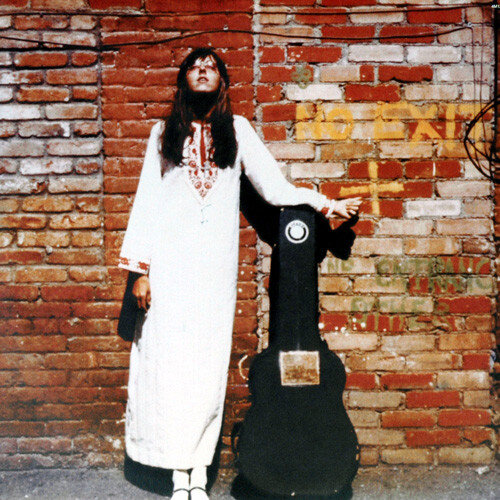Judee Sill
In the tradition of Chief Walkara (another of our admired martyrs), Judee Sill was visited at a very young age—even before that of music!—by the peculiar muse of theft and crime. Inspired to pursue the darker instincts of adolescence, she robbed and stole for no particular reason beyond acquainting herself with the essence of the experience itself. She had troubled childhood, it is said, bu Judee seemed led by a guardian entity with more volition than to remain simply a victim of the sum of her dead beat parents. Dynamic and full of independent spirit, Judee was destined for more than her circumstances.
Galvanized by gospel music during her teen years in reform school, Judee lived a checkered life torn between her imagination and ideals and the monotony and judgment of the quotidian. Her music was spiritual and transcendent, whereas her life was gritty and dissonant at nearly every turn. The plot points show us that her soul was a trickster and, in no way merely a victim of circumstance, rather her art was enriched by the tension of the good and bad extremes of her life. What resonates with the Bardos particularly, is the way in which she went about her troublemaking.
As mentioned above, as teen, what got her into reform school was that she intentionally set out to become a criminal, she would even rehearse her petty Los Angeles robberies before embarking to the liquor store with her pistol. What did she derive from these exercises that went against the grain of cultural norms? This mysterious intuition resonates with us because we do not make cider in any conventional way. We glean, not unlike theft, because it touches something mysterious and works outside of the conventional system, at least during the initial act. When you operate outside of the proper economy, at least as a way of connecting with the muse, as Judee did, you experience emotions and feelings that are outside of the understood economy of being as well. This habit can be precarious, and we admit that. Judee did not fair well in the end. For this reason, we pay our respects and toast to Judee’s spirit and, like a cornerstone, Judee stands and remains a spiritual archetype for the Bardos. We pay homage to her.

